Filter by

Memory, edited :taking liberties with history
"Memory, Edited explores historical memory in the context of today's crises of extremism and polarization, showing how narratives that seem to reveal an "arc of history" leading to progress or salvation are false accounts that exclude some groups and privilege others. Rumsey gives us a deep look at 20th century Russian and Eastern European artists as a way of exploring the effects of authoritar…
- Edition
- -
- ISBN/ISSN
- 9780262376150
- Collation
- 1 online resource
- Series Title
- -
- Call Number
- -

Yesterday's tomorrow :on the loneliness of communist specters and the reconst…
Originally published in German under title: Gestern Morgen."In Yesterday's Tomorrow, Adamczak responds to right-wing criticism in English of her first book, Communism for Kids, and critiques tendencies on the left to sidestep the dark history and the path that Communism ended up taking. She takes the reader through a series of 8 turning-points in the betrayal of communism, moving in reverse chr…
- Edition
- -
- ISBN/ISSN
- 0262363518
- Collation
- 1 online resource.
- Series Title
- -
- Call Number
- -

Comrades no more :the seeds of political change in Eastern Europe
In 1989, Soviet control over Eastern Europe ended when the communist regimes of the Warsaw Pact collapsed. These momentous and largely bloodless events set the stage for the end of the Cold War and ushered in a new era in international politics. Why did communism collapse relatively peacefully in Eastern Europe? Why did these changes occur in 1989, after more than four decades of communist rule…
- Edition
- -
- ISBN/ISSN
- 9780262271349
- Collation
- 1 online resource (x, 305 pages) :1 map.
- Series Title
- -
- Call Number
- -
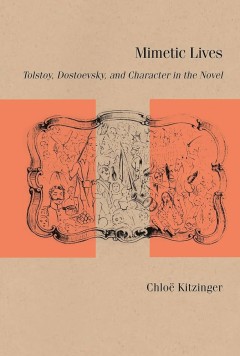
Mimetic Lives : Tolstoy, Dostoevsky, and Character in the Novel
What makes some characters seem so real? Mimetic Lives explores this unprecedented question on the rich ground of Tolstoy’s and Dostoevsky’s fiction. Each author discovered techniques for intensifying the aesthetic illusion Kitzinger calls mimetic life: the reader’s sense of a character’s embodied existence. Both authors tested the limits of that illusion by pushing it toward the novel�…
- Edition
- -
- ISBN/ISSN
- 9780810143975
- Collation
- 256 halaman
- Series Title
- -
- Call Number
- 800 KIT m
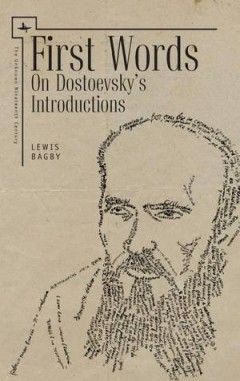
First Words : On Dostoevsky's Introductions
Dostoevsky attached introductions to his most challenging narratives, including Notes from the House of the Dead, Notes from Underground, The Devils, The Brothers Karamazov, and A Gentle Creature. Despite his clever attempts to call his readers' attention to these introductions, they have been neglected as an object of study for over 150 years. That oversight is rectified in First Words, the fi…
- Edition
- -
- ISBN/ISSN
- 9781618114822
- Collation
- -
- Series Title
- -
- Call Number
- 800 BAG f
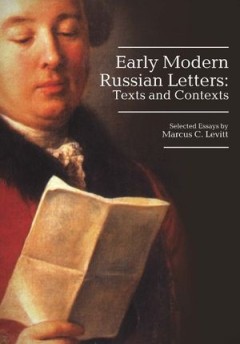
Early Modern Russian Letters : Texts and Contexts
Early Modern Russian Letters: Texts and Contexts brings together twenty essays by Marcus C. Levitt, a leading scholar of eighteenth-century Russian literature. The essays address a spectrum of works and issues that shaped the development of modern Russian literature, from authorship and philosophy to gender and religion in Russian Enlightenment culture. The first part of the collection explores…
- Edition
- -
- ISBN/ISSN
- 9781934843680
- Collation
- -
- Series Title
- -
- Call Number
- 800 LEV e
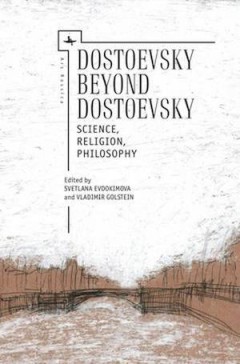
Dostoevsky beyond Dostoevsky : Science, Religion, Philosophy
Dostoevsky beyond Dostoevsky is a collection of essays with a broad interdisciplinary focus. It includes contributions by leading Dostoevsky scholars, social scientists, scholars of religion and philosophy. The volume considers aesthetics, philosophy, theology, and science of the 19th century Russia and the West that might have informed Dostoevsky's thought and art. Issues such as evolutionary …
- Edition
- -
- ISBN/ISSN
- 9781618115263
- Collation
- 424 halaman
- Series Title
- Ars Rossica
- Call Number
- 100 EVD d
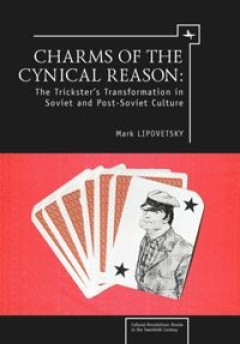
Charms of the Cynical Reason : The Trickster's Transformation in Soviet and P…
The impetus for Charms of the Cynical Reason is the phenomenal and little-explored popularity of various tricksters flourishing in official and unofficial Soviet culture, as well as in the post-Soviet era. Mark Lipovetsky interprets this puzzling phenomenon through analysis of the most remarkable and fascinating literary and cinematic images of soviet and post-Soviet tricksters, including such …
- Edition
- -
- ISBN/ISSN
- 9781934843451
- Collation
- -
- Series Title
- -
- Call Number
- 800 LIP c
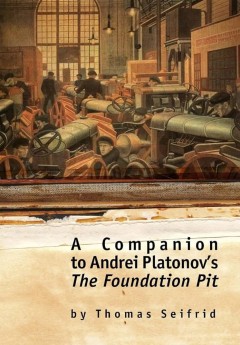
A Companion to Andrei Platonov's "The Foundation Pit" : Studies in Russian an…
Written at the height of Stalin's first "five-year plan" for the industrialization of Soviet Russia and the parallel campaign to collectivize Soviet agriculture, Andrei Platonov's The Foundation Pit registers a dissonant mixture of utopian longings and despair. Furthermore, it provides essential background to Platonov's parody of the mainstream Soviet "production" novel, which is widely recogni…
- Edition
- -
- ISBN/ISSN
- 9781618116970
- Collation
- -
- Series Title
- -
- Call Number
- 800 SEI c
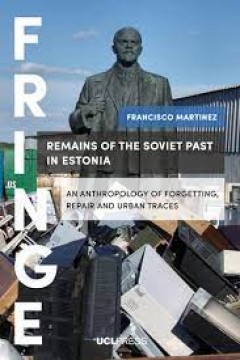
Remains of the Soviet Past in Estonia
What happens to legacies that do not find any continuation? In Estonia, a new generation that does not remember the socialist era and is open to global influences has grown up. As a result, the impact of the Soviet memory in people’s conventional values is losing its effective power, opening new opportunities for repair and revaluation of the past. Francisco Martinez brings together a number …
- Edition
- -
- ISBN/ISSN
- 9781787353534
- Collation
- -
- Series Title
- -
- Call Number
- -
 Computer Science, Information & General Works
Computer Science, Information & General Works  Philosophy & Psychology
Philosophy & Psychology  Religion
Religion  Social Sciences
Social Sciences  Language
Language  Pure Science
Pure Science  Applied Sciences
Applied Sciences  Art & Recreation
Art & Recreation  Literature
Literature  History & Geography
History & Geography